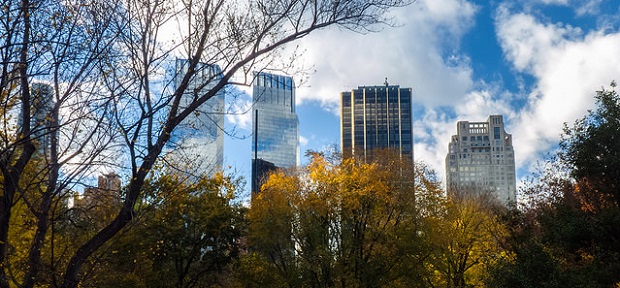This week the New York Times is running a series of hard-hitting investigative reports into who is buying luxury apartments in a single skyscraper overlooking Central Park in New York City, called Time Warner Center, and how they are doing it. It has highlighted a dubious bunch of big spenders allegedly enjoying the proceeds of corruption, including criminals and tax evaders.
What the reporting illustrates is that it is very easy for people to hide the origins of their wealth: more than half the luxury apartments in Time Warner Center are not officially owned by individuals but by people concealing their identity through shell companies.
In Europe, this week, Le Monde working with the International Consortium of Investigative Journalists and some 60 news outlets, have collaborated on a series of articles that allege that HSBC, the UK’s biggest bank, gave advice to high-net-worth customers on how they can evade taxes. In addition, the documents show that the global banking giant allegedly profited from doing business with arms dealers who channeled mortar bombs to child soldiers in Africa, bag men for developing world dictators, traffickers in blood diamonds and other international outlaws.
The common link here is secrecy. People get away with money laundering and tax evasion because of two big loopholes: the ease of setting up a secret shell company and a lack of oversight by professionals who should be asking questions about the origins of their clients’ wealth and the legality of the accounts.
In the case of New York real estate, much of the money to fund a luxury lifestyle appears to have come from the proceeds of corruption. In the case of HSBC, it is both the corrupt and also high-net-worth individuals who want to hide their cash and evade taxes.
Last year Transparency International launched a campaign called Unmask the Corrupt, to push governments to eliminate the secrecy of shell companies as a way to stop corruption and to ensure that there is greater oversight and due diligence when suspicious customers attempt to buy expensive real estate properties and luxury goods.
![]()
The change in laws to prohibit shell companies would be relatively simple. It would require that the names of the real owners of companies (the so-called “beneficial owners”) be made public through central public registries of companies. These public registries would show who owns, controls and benefits from companies.
This approach was recently given a boost by the Group of 20 leading economies and especially by the European Union, which have acted to support greater transparency of beneficial owners by endorsing the use of central registries. The issue now is whether these will be available to everyone. For this, we need to exert greater public pressure.
Nevertheless, central registries would make it easier for banks to comply with their duties to check who their customers really are and whether the sources of their funds are legitimate. They would have fewer excuses for entering into business relationships with clients who are already known, for example, to have connections with arms trafficking, blood diamonds or bribery.
Shells in New York
New York City is dotted with luxury properties owned by shell companies. In the Bloomberg tower on Lexington Avenue, for example, over half the condominiums are owned by shell companies. In The Plaza on Fifth Ave, it’s two-thirds; at One57, it’s more than three-quarters. And the list goes on: at the Time Warner Center it is 64 percent and at Trump International and 15 Central Park West, more than half the properties in each building are owned by anonymous companies.
In fact, the roughly 900 condos in these buildings are worth more than the combined cost of 20,000 average American homes, according to the New York Times reports which quote the statistic that in 2014, 54 percent of sales over US$5 million in Manhattan were to shell companies.
It is simply not clear whether anyone selling the properties followed legal obligations to find out how the potential buyers came by their wealth.
We believe it is crucial to adopt legal measures and fully enforce regulations (where already existing) that require enabling businesses such as banks and real estate agents to comply with anti-money laundering obligations, including providing due diligence checks and reporting suspicious activities.
Transparency International’s analysis of data from the European Union also paints a disappointing picture: among all the suspicious transactions reported in 2010, for example, only 1 in 2,500 was submitted by real estate agents. In Germany, the UK and Italy, national reports reveal the same worrying trend: real estate agents and high-value dealers are not routinely reporting suspicious transactions.
Less of these scandals would break if there was real transparency and accountability in the global financial sector. That’s why we launched the Unmask the Corrupt campaign to try and push governments to mandate the kind of openness that the corrupt are frightened of.
















 Connect with us on Facebook
Connect with us on Facebook Follow us on Twitter
Follow us on Twitter